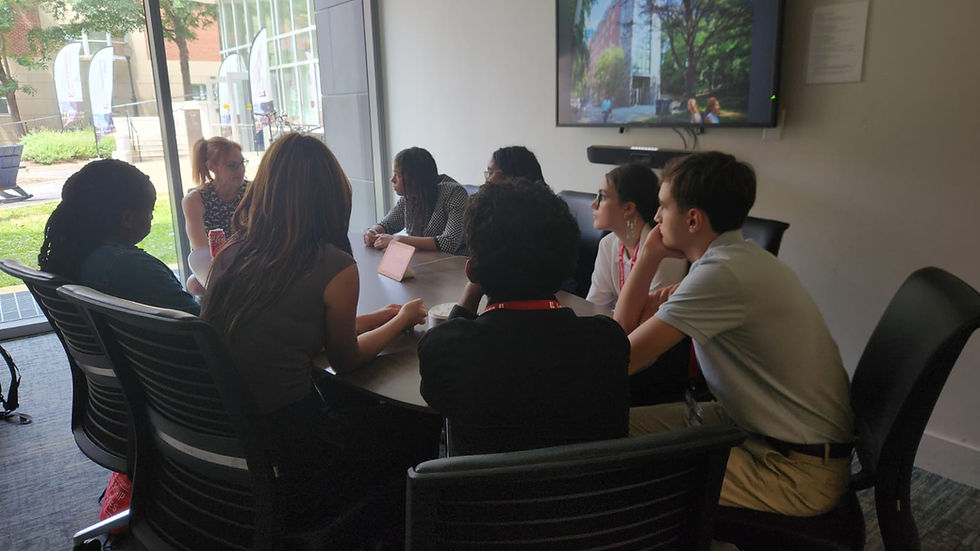Diving Deep into the Mind and Brain
- Marshall Bailly
- Jul 4, 2025
- 2 min read
What an incredible morning of discovery our neuroscience interns experienced today! From the moment they gathered for breakfast, you could feel the anticipation building for their first full day of intensive scientific exploration.
Dr. James Giordano kicked off the morning with "Minding the Brain and What it Does," building beautifully on yesterday's keynote by diving deeper into the fascinating world of neuroethics. Watching our interns grapple with complex questions about consciousness, free will, and the ethical implications of neuroscience research has been inspiring. These aren't just theoretical discussions; they're laying the groundwork for the ethical frameworks these future medical leaders will use throughout their careers.
The real excitement began when Dr. Brent Harris, Director of the prestigious Georgetown Brain Bank, introduced our interns to the world of neuropathology, joined by Dr. Emily Sloan, Associate Director of Neuropathology at the MedStar Comprehensive Brain Tumor Center and Department of Pathology at MedStar Georgetown University Hospital. Their expert overview of brain anatomy using actual human specimens provided the perfect foundation for what came next: a hands-on exploration where students could examine them firsthand.

The reverence and scientific curiosity the interns showed was truly moving, but what made this experience even more special was the informal mentorship that naturally emerged. As our interns carefully studied the intricate structures that house human consciousness, they didn't just ask sophisticated questions about neural pathways and brain function; they engaged in genuine conversations with the doctors about career paths, school recommendations, and research interests.
The personal attention was remarkable; one doctor even suggested a student look up the famous Patient HM case because it aligned perfectly with that intern's specific interests. Seeing high school students not only learn about the brain but also receive individualized guidance from leading neuropathologists reminded us why this program is so transformative. They're not just holding human consciousness in their hands; they're being mentored by the very experts who dedicate their lives to understanding it.
Dr. Rachel Wurzman then guided our research teams through the fundamentals of neuroscience research methodology, helping them understand how to craft meaningful research proposals. The collaborative energy in the room was electric as interns began connecting their morning's anatomical discoveries with potential research questions they’ll explore with their teams throughout the week and propose to our distinguished panel on Friday.

As we head into this afternoon's sheep brain dissections and our panel with leading neurologists, it's clear that our interns are already thinking like true scientists. They're asking the right questions, making connections between concepts, and approaching complex problems with both rigor and creativity.
The transformation from curious interns to emerging neuroscientists is happening right before our eyes, and it's remarkable to witness.





Comments